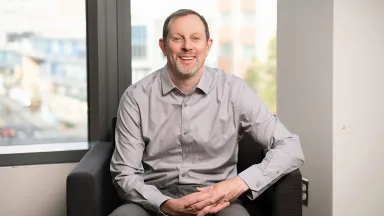
How Economists Are Using New Theories to Help People Make Better Decisions
Economists traditionally assume that people are well informed, rational and act in their own best interests. As a result, the theory says that absent any effects on third parties (e.g. second-hand smoke), the government shouldn’t be telling people what to consume.
Although many find this small-government message appealing, and most economists think these assumptions are mostly true most of the time, some economists can’t help but notice situations where the theory doesn’t ring true. Is a heroin addict acting in his own best interest if he loses his job and spends his time shooting up in a flophouse? Do problem gamblers make themselves better off with repeated trips to the casino? For a less extreme example, consider payday loans. Are people rationally using them to get through rough times when better sources of credit are unavailable? Or are some people consistently using them in a way that leaves them worse off?
A growing number of economists – calling themselves behavioral economists — are incorporating knowledge of human behavior from other fields, particularly psychology, to widen their understanding of economic behavior. The most common example is probably loss aversion, where the potential to lose a certain amount of money provides greater motivation than the potential to gain the same amount. In one application, researchers in Chicago found that paying teachers a bonus up front and threatening to take it away if their students didn’t meet certain performance targets was more effective than simply paying teachers if and when their students met the targets.
Ideas from behavioral economics are also summoned to explain behavior when the traditional model has difficulty. For example, a group of researchers found that some gym members continued to pay a monthly membership fee even though it would have been cheaper if they had switched to a plan that allowed them to pay on a per visit basis. They found that traditional economic models emphasizing rationality were hard pressed to explain this behavior, but that it could be explained by persistent overconfidence in future gym attendance, an idea not allowed under traditional theory.
Others have begun testing interventions motivated by behavioral economics to improve behavior that appears suboptimal. Many smokers, for example, find themselves unable to quit, and many sedentary individuals find that they cannot establish a regular exercise routine. Behavioral economists attribute these failures in part to a lack of commitment and have found that offering commitment contracts, where individuals bet that they will engage in the desired behavior and forfeit their own funds if they fail, can help some people quit smoking or increase their exercise.
Others have drawn on ideas from behavioral economics to improve policy effectiveness. Work that leverages the concept of social norms found that informing taxpayers of the average rate of compliance with tax laws increased their rate of tax compliance. Other work finds that changing the default option in the choice of saving plan can have a large effect on the rate of saving, and that changing the default option to “yes” greatly increases the rate of organ donation.
This academic work has spilled over into the popular press with books like Nudge by Richard Thaler and Cass Sunstein, Thinking, Fast and Slow by Daniel Kahneman, and Predictably Irrational by Dan Ariely. It’s made its way into government with the creation of the “Nudge Unit” or Behavioral Insights Team in the United Kingdom in 2010 followed by a similar unit in the White House Office of Science and Technology Policy, and even into the private sector with the launch of BEWorks and the website Stickk.com.
Perhaps predictably, this movement has not been without its detractors with some decrying that it provides additional excuses for the “nanny state” to micromanage our lives, undercut our self-sufficiency, and ultimately make us worse off. But such overreach seems unlikely for two reasons.
First, many of the interventions are not coercive. Changing a default to “yes” for organ donation may increase donation rates, but it still leaves people the option to say no. One group of researchers tried to default the tax refunds of low-income taxpayers into savings but found that this group simply overrode the default and spent their refunds instead.
Second, as long as the policymaking is based on evidence, it should be making people better off rather than worse off, and if the government ignores the evidence, that’s a problem with the government and shouldn’t be unique to policies based on behavioral economics. Furthermore, as with other policies, if the government does overreach and adopt a policy that makes people worse off, at least in this country they can pressure lawmakers to change it or vote against those who support it.
So where is behavioral economics going? Its detractors say the phenomena that it seeks to explain with theories from outside economics will ultimately be explained by more careful application of traditional economic theory. Behavioral economists, however, see a different evolution. They think that because their explanations match the facts better than the traditional theory, behavioral economics will continue to add to and enrich it. They see a discipline that draws on a wider body of theory where the battle lines between traditional and behavioral economics have faded and both are part of a new version of economics that is much improved.
Mark Stehr, PhD, is an associate professor in Drexel LeBow’s School of Economics.



